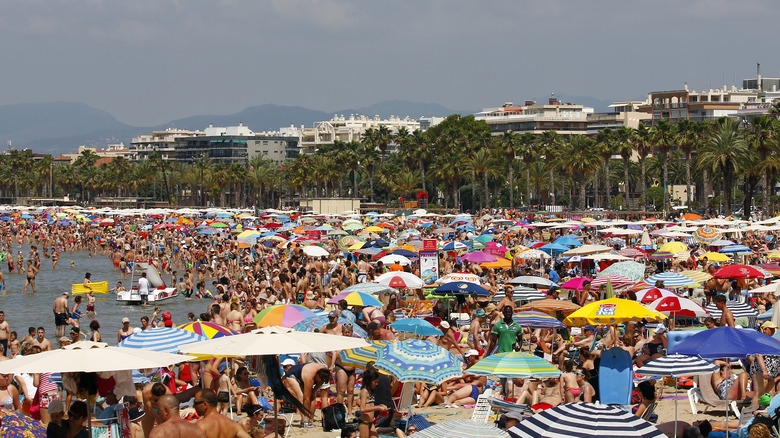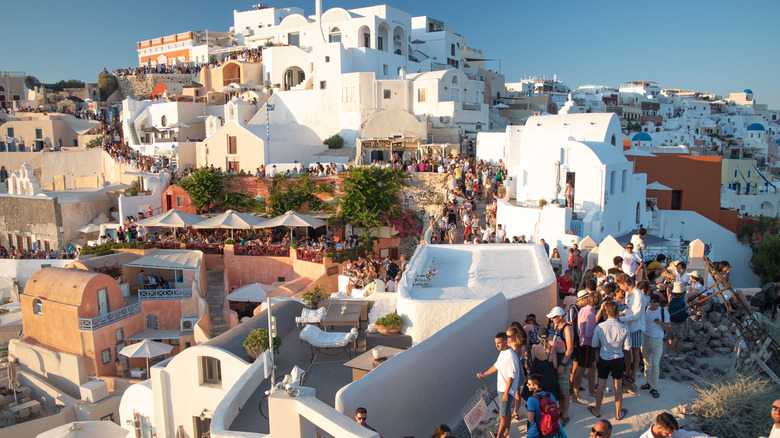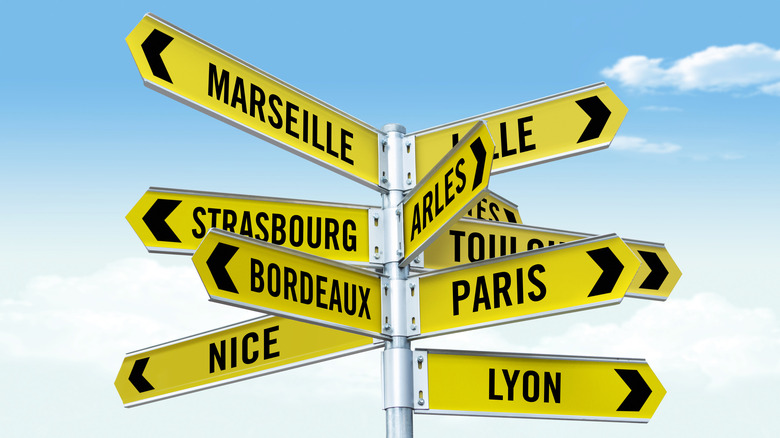2024 Is Expected To Be The Worst Year Ever For This Upsetting Travel Nuisance
"Overtourism" became a catchphrase in the travel industry after Rafat Ali officially coined the term in 2016 to describe the consequences of exploding tourism in Iceland. These days, the term broadly refers to a destination experiencing more visitors than it can handle at any point in time, with negative impacts on the environment, society, and culture — not to mention the tourists themselves. A few different drivers are responsible for this phenomenon. One has been the democratization of travel across the world. Whereas in the past, only wealthy elites were able to jet off to exotic locations, today, more people than ever can afford cross-country and international trips. This is due to factors like increasing affluence in developing countries and the rise of low-cost airlines.
Secondly, social media amplifies the allure of traveling , increasing awareness of far-flung destinations and creating a bandwagon effect. People see photos of influencers sipping Aperol spritz in the Italian Riviera and think, "I want to go there, too." In addition, pent-up demand from the COVID-19 travel restrictions set off a wave of revenge tourism, in which people have been determined to make up for lost travel opportunities. All of these combined factors have contributed to a global overtourism problem. In 2024, this issue could reach unprecedented levels, with international arrivals expected to surpass those of all previous years according to the UN's World Tourism Organisation, as reported by Sky News.
The damaging effects of overtourism
The negative repercussions of overtourism can be far-reaching. Increased air travel exacerbates climate change, while careless visitors can damage historical sites and fragile ecological systems, like the Great Barrier Reef. Throngs of tourists can also disrupt local economies, traditions, and lifestyles, as residents are forced to cater to visitors' needs. It's a given that tourism booms do enable certain businesses to prosper: hotels, restaurants, landlords, and more. But at the same time, local residents may find themselves unable to keep pace with tourism-related increases in their costs of living. Suddenly, they might not be able to afford housing in communities they've live in their whole lives.
Overtourism and its consequences are becoming increasingly common all over the world. In 2023, the world's most overcrowded tourism spot was Phuket, Thailand, with a mind-boggling 118 visitors for each inhabitant, according to a study by MoneyTransfers.com. Authorities in Barcelona, Spain, closed the city's northern port terminal in an attempt to better control cruise ship traffic. A provincial governor in Bali, Indonesia, which has been hit hard by overtourism, now requires a list of rules to be attached to all incoming visitors' passports to discourage swearing, disturbing sacred trees, and other culturally inappropriate behaviors. The anecdotes go on and on.
Strategies and solutions for countering overtourism
Luckily, not all is lost. As responsible travelers, we can play a crucial role in mitigating the damage from overtourism. According to the French start-up Murmuration, 80% of travelers visit 10% of destinations. The first thing we can do to address this imbalance is choose to visit less popular destinations. This approach not only spreads the tourism load more evenly across the globe, but also leads to memorable, off-the-beaten-path experiences. Instead of going to congested Paris — especially this summer when it's hosting the 2024 Olympics — opt for Lyon, a foodie's paradise where the arts are flourishing and you can stroll in the country's largest urban park. You can also opt to travel during off-peak seasons to avoid crowds, score cheaper flights and accommodations, and experience a destination in a more authentic way.
It's also imperative to respect local cultures, traditions, and behavioral norms. Skip the chewing gum in Singapore. Cover your shoulders and knees when visiting cathedrals in Europe. And please, whatever you do, don't ink or carve your initials on anything while traveling. Another important strategy is to patronize local businesses, hotels, restaurants, and guiding services rather than international chains to ensure that our spending directly benefits the communities we're visiting. Finally, choose environmentally and socially responsible travel options when they're available to further the growth of a tourism industry that's sustainable in practice and not just in theory. Our travel decisions have a big impact on our world, so think carefully when planning your next trip.


